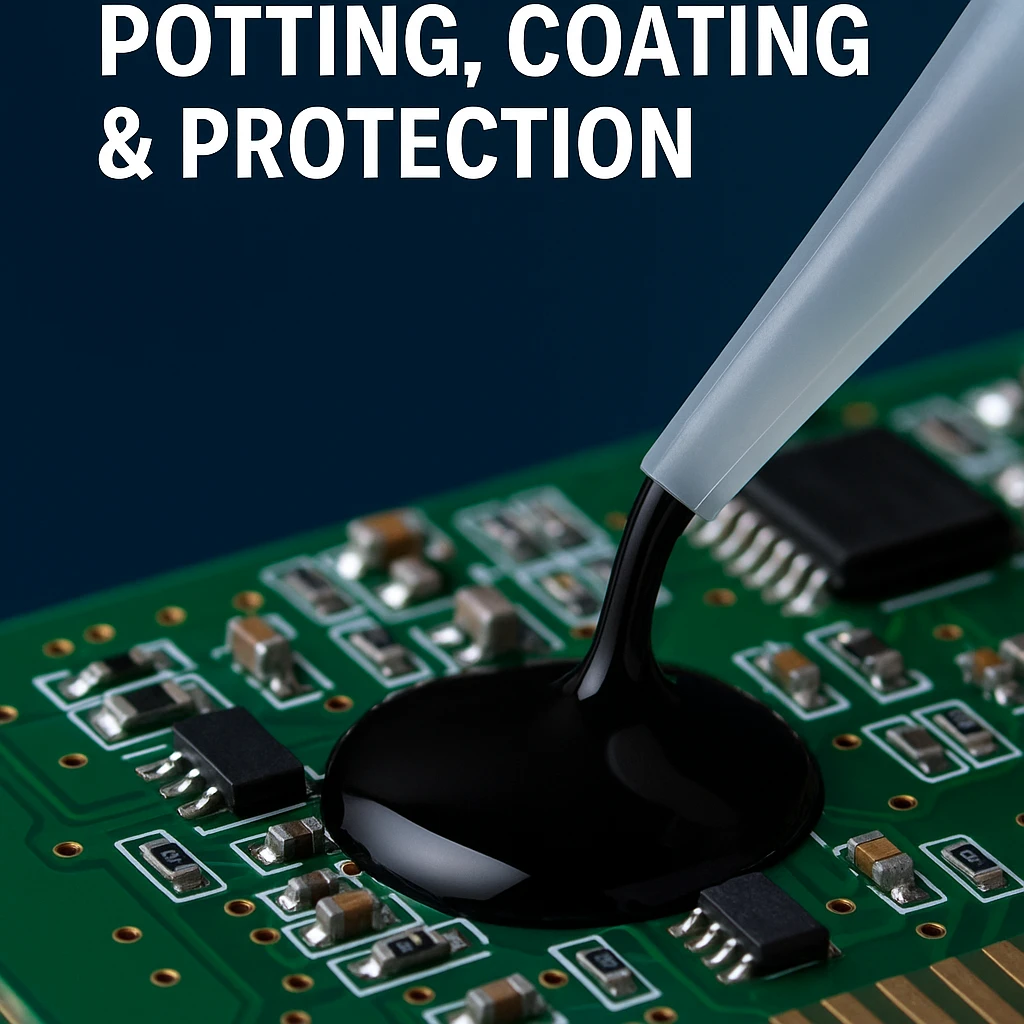Epoxy Resin in Electronics Potting: Ultimate Selection Guide

Epoxy Resin in Electronics Potting: Ultimate Selection Guide
Focus Keyword: epoxy resin in electronics potting

Why Epoxy Resin Is Used for Electronics Potting
Epoxy resin offers a robust and durable solution for protecting electronic components from moisture, dust, mechanical shock, and thermal stress. Unlike silicone or polyurethane, epoxy delivers higher adhesion and rigidity, making it ideal for applications where strength and long-term performance are critical.
Key Applications
- LED drivers and transformers
- Automotive sensors and control units
- Power modules and relays
- Industrial circuit boards and PCB assemblies
Advantages of Epoxy Potting Compounds
- Thermal conductivity: Specialized formulations allow efficient heat dissipation
- Dielectric strength: Electrical insulation is improved, preventing short circuits
- Moisture resistance: Hermetically seals components in harsh environments
- Mechanical strength: Vibration, shock, and impact resistance
Choosing the Right Epoxy for Your Electronics
Selecting the right potting compound depends on:
- Thermal management needs: Choose thermally conductive epoxy (1-2 W/m·K)
- Operating temperature: Standard up to 120°C; high-performance up to 180°C+
- Viscosity and flow: Low viscosity for fine PCB spacing
- Color & clarity: Black for UV shielding, transparent for visible LEDs
Recommended Product: ZDSpoxy 2108AB
Our 2108AB epoxy resin is formulated for electronics potting with excellent flow, insulation, and thermal stability.
How to Apply Potting Epoxy
- Clean and dry the PCB or component thoroughly
- Mix resin and hardener in the correct ratio (e.g. 2:1)
- Degas the mixture if needed
- Pour slowly to avoid air entrapment
- Cure at room temperature or accelerated at 60–80°C
Conclusion
Epoxy resin in electronics potting ensures durability, reliability, and safety in harsh conditions. Choosing the right formulation—like ZDSpoxy 2108AB—can significantly extend the lifespan of your electronic devices.
Explore More: Best Epoxy for PCB Encapsulation





